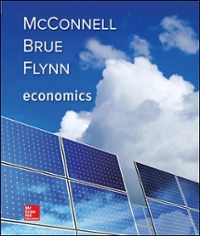Question
Country A allows the free movement of financial capital and maintains a fixed exchange rate. Unfortunately, the economy of Country A goes into a recession.
Country A allows the free movement of financial capital and maintains a fixed exchange rate. Unfortunately, the economy of Country A goes into a recession.
The questions for this scenario are as follows:
1.The central bank knows that it can't use monetary policy to help the economy because of the impossible trinity problem. So, it is not able to help the weakening economy. As the economy worsens, the profitability of businesses falls, affecting where foreign investors want to put their investment money. As foreign investors move their money, what happens to their demand for currency A and what happens to their supply of currency A, on the forex market?
2.IF the central bank of A did not work to keep its exchange rate fixed, what would then happen to the value of currency A on the forex market?
3.To stop this change in the value of currency A (i.e. to keep the exchange rate fixed) does the central bank of A need to buy its own currency OR sell its own currency on the forex market?
4.Does this increase OR decrease the central bank's foreign reserves?
5.The official intervention in question 3 ends up altering the country's money supply. Does it increase OR decrease economy A's money supply?
6.What does this do to interest rates in A?
7.Does this change in interest rates help the economy recover from the recession, OR does it make the economy even weaker?
- Would this impact on the economy make investors want to have more investment money in country A OR less?
Step by Step Solution
There are 3 Steps involved in it
Step: 1

Get Instant Access to Expert-Tailored Solutions
See step-by-step solutions with expert insights and AI powered tools for academic success
Step: 2

Step: 3

Ace Your Homework with AI
Get the answers you need in no time with our AI-driven, step-by-step assistance
Get Started


